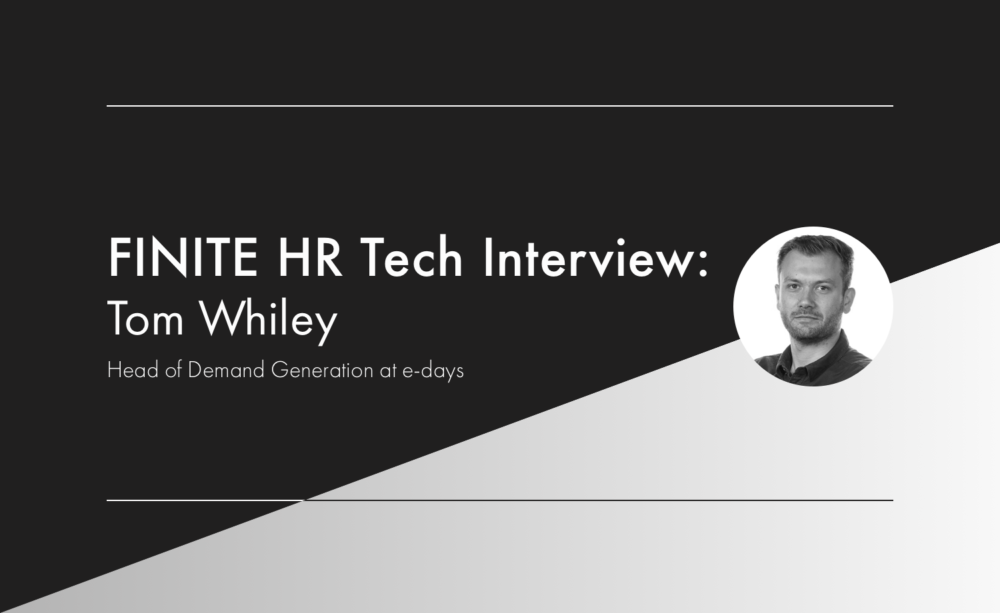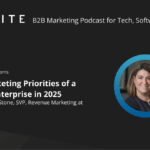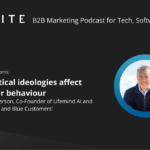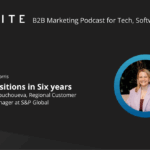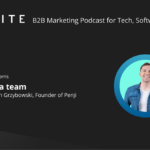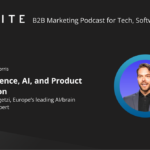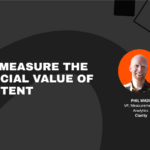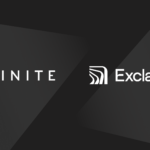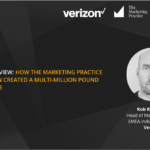You’re missing out if SEO isn’t considered in your content marketing strategy. The HR market is relatively new compared to other tech solutions, so audiences often need education. By leveraging content to educate, you can generate leads and raise awareness of your brand.
In this interview we talked to Tom Whiley, Head of Demand Generation at e-days – a global system for staff leave tracking & absence management.
Tom has a wealth of experience and plenty of insights into why and how to use SEO for your HR Tech marketing.
This interview covers:
- Why SEO is suitable for HR Tech marketing in particular
- The first steps to take in building an SEO strategy
- Challenges in doing SEO for an HR Tech company
- The future of SEO for HR Tech marketing
FINITE: Firstly, could you tell us about your background in B2B marketing and your current role as Head of Demand Generation at e-days?
Tom: My background in B2B marketing started to take off with my previous role at a top UK digital agency. For the best part of five years, leading a team of specialists to design and execute digital strategies for SaaS and manufacturing businesses around the world to supercharge their growth. I was able to take that in-depth knowledge and focus of digital into an in-house role at e-days.
My role as Head of Demand Generation at e-days is defining and executing the digital strategy, aligned with wider business goals and marketing objectives, to drive revenue growth. This includes both organic SEO and paid media. With that, I help drive alignment and collaboration between sales and marketing regarding demand generation objectives such as revenue creation, lead conversion rates, and CAC (customer acquisition cost).
FINITE: Why do you think SEO is a valuable strategy for HR Tech content marketing in particular?
Tom: Along with PR and social, SEO is one of the most important channels for building demand and creating awareness for your HR tech solution. It all starts with education – educating your target audience that there’s a solution out there that helps them make the world of work a better place.
That awareness content spins the demand generation flywheel that puts you in a strong position to later convert through focused paid media retargeting and strong product marketing.
Having worked on agency-side and with companies across different B2B industries, HR tech is interesting because there are a lot of successful solutions out there built off the back of great SEO. It’s a forward-thinking industry that’s embraced digital marketing quicker than other B2B industries.
However, a lot of companies embrace SEO because they’re just told to do it without really understanding the “why” and the role it plays in creating demand. So it’s then executed in a vacuum and not aligned to business goals which means it may not receive the investment it deserves.
SEO has a huge impact on long term brand marketing, as it plays a significant role in developing thought-leadership which creates advocacy, trust, and credibility. Also, search engines reward us with good rankings because trust and credibility shine through on every piece of content we produce – whether it’s a blog or product page.
FINITE: What are the first steps you take to build an SEO strategy?
Tom: It all starts with understanding and defining your ICP (ideal customer profile) – the roles in their business, their pains, and the reasons why they buy your product. While it’s important to leverage competitor and keyword analysis tools, I cannot stress the importance of your CRM to identify those SEO opportunities. My preferred CRM is Salesforce, but all the top platforms give anybody the opportunity to define and segment audiences for great content. From there, identify and action new awareness content pieces with keyword search volumes.
Couple that with creating excellent on-page experiences in tune with today’s expectations – fast page loads, naturally written, compelling copy that meets search intent, well placed internal links from other relevant pages – and you’ve got the foundations to build strong organic visibility. Results don’t happen overnight and building PR campaigns to secure authoritative links is challenging but setting SMART goals with a focused content plan will build that momentum.
I measure the success of these SMART goals with metrics like sales pipeline creation, lead conversion rates, and closed revenue are among the top commercial measures, and SEO is one of our most valuable channels because it helps capture those in the market audiences. However, it’s important not to focus too much on those because SEO is tied so closely to building our brand. I mean, for example, you don’t do PR, organic social posting, and podcasting to generate revenue – you do it to start a fire and create that awareness.
FINITE: What is the biggest challenge you have come across in doing SEO for e-days?
Tom: The biggest challenge was when I first arrived at e-days: building authority for a website that had very little search presence for non-branded phrases. The website was light on awareness content, which meant little to no presence in Google’s Top 3 positions. But that’s why I made the move to e-days, it was a challenge I was hungry for – to help build something special.
This challenge was overcome by researching the pain-points of our ICPs and producing awareness content around keyword search volumes. Coupled with PR that was powered by original, data-driven content on employee absence trends, we started to build strong backlinks from heavy hitters like Forbes and Metro – all in-house driven with the help of a freelance PR consultant.
As a result, within a year, we saw a 350% increase in non-brand keywords ranking in Google’s Top 3 positions which lead to a 150% increase in organic traffic…all with a domain switch in between!
FINITE: How do you foresee the future of SEO in an HR Tech content strategy within an increasingly competitive landscape?
Tom: We’re moving into an integrated world where channels like SEO and paid media are no longer working in silo. You must look beyond just traffic driving with SEO and put yourself in the position of your customer.
Bringing together those channels and working closely with your sales and customer teams will better equip you to create content that will add incredible value and build a trustworthy brand. Follow this, and search engines will thank you for it by putting you above your competitors.
I actively align these channels through communication. Sharing successes, failures, and opportunities with the wider business not only provides accountability but ensures the activity we’re doing is aligned to business objectives.
FINITE: Thanks for telling us all about SEO and how you’ve used it in your B2B content marketing for HR Tech!
To read the last FINITE HR Tech interview and to learn about marketing through a Series A funding round, head here.
